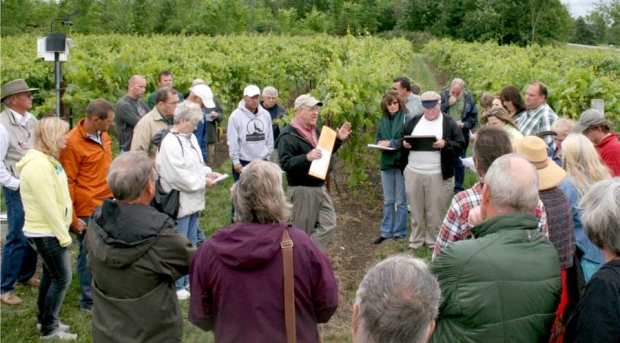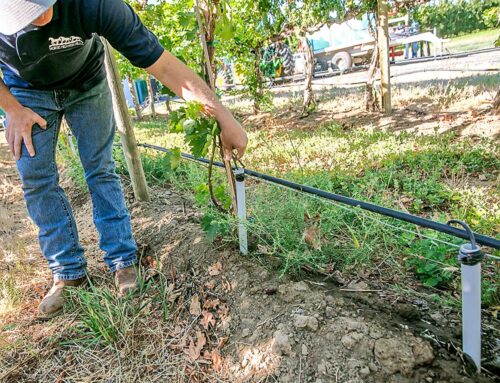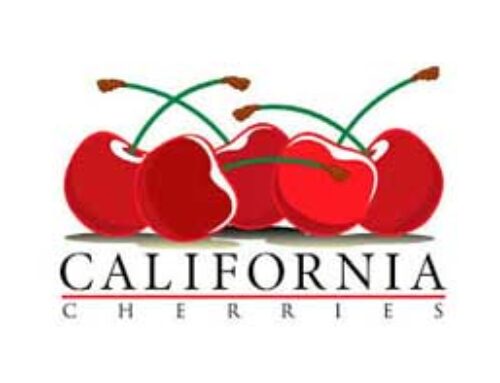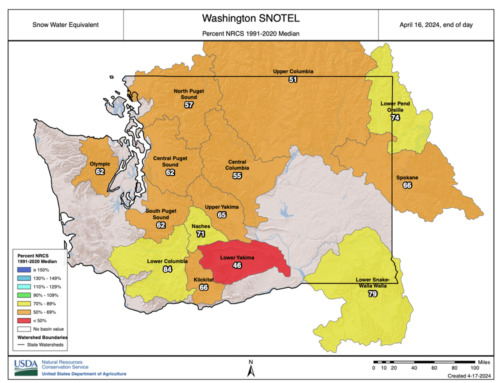
Northern Grapes Project Director Dr. Timothy Martinson speaks about the training system trials during a field day at Coyote Moon Vineyards in Clayton, NY. (Courtesy Chrislyn Particka, Cornell University)
The Northern Grapes Project has received an additional $2.6 million in funding from the U.S. Department of Agriculture’s Specialty Crops Research Initiative to complete the final two years of the multistate effort, which began in 2011.
The project, originally funded at $2.5 million but budgeted for $6.1 million over five years, focuses on growing extremely cold-hardy wine grape varieties that are new to both growers and consumers, supporting a rapidly-expanding industry of small vineyard and winery enterprises. These new varieties began to appear about 20 years ago.
Dr. Tim Martinson, senior extension associate at Cornell University, leads the project team, which includes research and extension personnel from 10 institutions in the upper Midwest and Northeast.
“New producers are spread across 12 states, most without an established wine industry,” said Martinson. “By working together, the Northern Grapes Project team provides more resources to producers than would be available if each state had its own effort.”
The new varieties have growth habits and flavor profiles that are quite different from well-known varieties, especially high acid levels. So the project’s researchers have been working to determine the best ways to grow them, turn them into flavorful wines, and market those wines in local and regional markets.
“As a producer, having scientists involved is especially valuable to us as they are conducting rigorous tests to back up our hunches and our theories,” said Dave Greenlee, a project advisory council member and co-owner of Tucker’s Walk Vineyard in Garretson, South Dakota. Greenlee cites trials of various trellising systems in vineyards and sensory evaluations of wines using different yeast strains in the lab. “These save us time and help us improve our products,” he said in the grant announcement from Cornell.
The project includes personnel from Cornell University, the Connecticut Agricultural Experiment Station, Iowa State University, Michigan State University, North Dakota State University, South Dakota State University, the University of Minnesota, the University of Nebraska, the University of Vermont, and the University of Wisconsin.
For more information, visit the Northern Grapes Project website at http://northerngrapesproject.org.






Leave A Comment